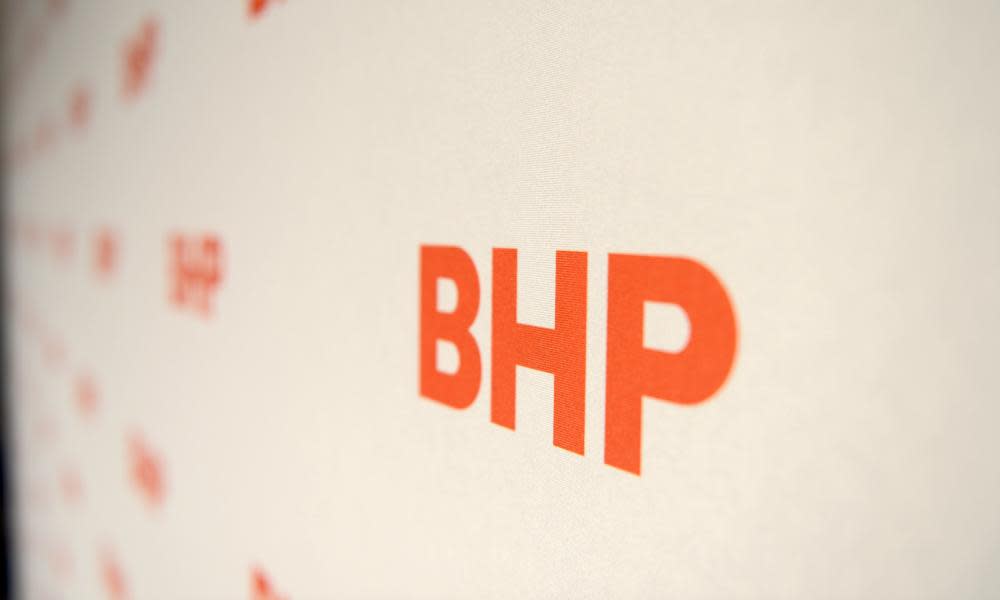Mining industry opposes new laws for Aboriginal heritage sites despite Juukan Gorge failures

A divide is forming about the way to fix Aboriginal heritage protection in Western Australia, with mining companies saying they can be trusted to negotiate with traditional overs over heritage concerns even though that process failed to protect Juukan Gorge.
BHP, Rio Tinto, Gina Rinehart’s Roy Hill, Woodside and Fortescue Metals (FMG) have all told a parliamentary inquiry into the destruction of Juukan Gorge that the federal government should not get more involved in Aboriginal heritage protection, and that agreements made under the native title system should be the basis of managing Aboriginal cultural heritage.
All argued that such agreements had – with the exception of Juukan Gorge – worked well to manage heritage sites.
The idea also has the support of the WA government, with Aboriginal affairs minister Ben Wyatt telling the inquiry that his draft legislation, due to be released in a few weeks, will “create an architecture which elevates” the native title system.
Related: Rio Tinto did not tell traditional owners blowing up Juukan Gorge site was just one option for mine
But the National Native Title Council said the native title act (NTA) is flawed. It only gives traditional owners a six-month window in which they must negotiate with mining companies or face an outcome that allows mining to go ahead without any benefits to them.
“The lack of equal bargaining power extends beyond the obvious inequality of resources, it is entrenched by a legal framework that renders traditional owners reliant on the benevolence of industry standards and practice,” the council’s chief executive Jamie Lowe said.
Lowe said it results in agreements that “enable the pretence that when destruction is authorised, it is what traditional owners would have agreed had legislation given them the right to say no.”
Fortescue Mining said it has “excellent relationships” with people in the Pilbara based on “deep engagement, mutual respect and the agreement-making process” and has robust internal “fail-safes” to ensure Aboriginal cultural heritage is protected from “ill-considered damage”.
It said the WA heritage regime has been “largely successful”.
BHP submitted that fines for damaging sites should be increased potentially into the millions, “to reflect public concerns, act as a deterrent to unlawful damage and to reflect the unique nature of some cultural heritage sites”.
Roy Hill said there was “no need for further commonwealth legislation in the heritage space” and that any new laws “must also consider and be sensitive to the private land use agreements that have been entered into by native title parties with miners”.
But heritage experts say that would be a “minimalist approach” and warned against allowing the industry to “regulate itself”.
Australian National University emeritus professor Jon Altman said native title negotiations already favour mining companies who are motivated by profit, not by protecting Aboriginal heritage. “Free, prior and informed consent” is not enshrined in the act.
“The mining industry is very effective in lobbying for its commercial interests and recognises that at times it needs to give some minor ground in the face of public disquiet if it is to retain its privileged position in gaining a licence to operate irrespective of the wishes of Indigenous native title interests,” Prof Altman said.
Native title lawyer Greg McIntyre said relying on the architecture of the native title system would only work if groups representing traditional owners – known as prescribed body corporates, or PBCs – received greater federal funding.
“What really needs to happen is to lift the status of Aboriginal heritage to where it at least has some equality with iron ore. Ultimately whatever agreements you have, the government, of either colour, is going to consider the billions of dollars or iron ore is worth more to them than Aboriginal heritage,” McIntyre said.
Agreements under between mining companies and native title holders are commonplace in the Pilbara. They are usually confidential and often contain a gag order preventing traditional owners from publicly objecting to any proposal by the mining company, in exchange for a promise to minimise damage, follow a heritage management plan with regular consultation.
Rio Tinto had such an agreement with the Puutu Kunti Kurrama and Pinikura (PKKP) people when it blew up the 46,000-year-old rock shelter in Juukan Gorge in May. BHP has a similar agreement with the Banjima people, which prevented them from objecting to an application to destroy up to 40 sites despite telling an archeological advisor they would “suffer spiritual and physical harm if they are destroyed”.
The Murujuga Aboriginal Corporation (MAC), who are not native title holders but are the recognised traditional custodians of the Burrup, said “the existence or operation of the [Aboriginal Heritage Act] has not prevented damage to, or the destruction or removal of, sites or cultural objects”.
They said the federal legislation – which they operate under, because Murujuga is a registered national heritage site – is preferable to the state laws because it at least brings all parties to the negotiating table.
The Yinhawangka PBC – which represents the traditional owners in negotiations with Rio Tinto at Paraburdoo in the Pilbara, said they are “overwhelmed” negotiating with an industry that is “ massive in scale and relentless in nature”.
“Our corporation, a relatively small one for the Pilbara, with 10 staff including one heritage professional, and a ranger team of three, is overwhelmed by the amount of attention that we should be paying to these matters, and our lack of the technical expertise,” the Yinhawangka submission said.
They said regulation cannot be left to the WA government.
“The Western Australian Treasury, of course, benefits from every additional tonne of iron ore that is exported from the state.”

 Yahoo News
Yahoo News 
